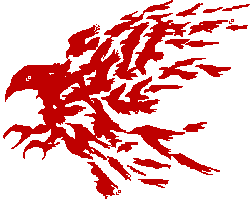
P h o e n i x M y l o
| Main | Art | Literature | Music | Film | Philosophy | Photography |

| Main | Art | Literature | Music | Film | Philosophy | Photography |
The premise of this paper is that the roots of the American ideals of democracy, personal liberty and equality are derived not from our European ancestry but from our Native American neighbors, especially the Haudenosaunee, or Iroquois Confederacy as they are more commonly known. Most of the ideals in our Bill of Rights such as freedom of religion and speech were first enacted in the Iroquois Great Law of Peace sometime between 1000 and 1450 CE. There is very little in European history to suggest anything akin to the idea that all men are created equal or that the common citizen had any rights other than those granted by the government. For most of recorded history the divine right of kings held sway. When colonists first reached this continent they came into contact with many different tribes of Native Americans, but because the Iroquois were the largest and most powerful it was they who were looked upon by the white man as necessary allies and as the epitome of what Indians were. Due to this the Iroquois were in a position to teach the white man how to go about surviving on this continent and how to make the most of their lives.
The people who came here from Europe did so because they were tired of kings and queens who owned all the land, did entirely as they pleased and viewed the common people as chattel. They desired to be free, but they didn't really know how to establish a free society. The prevailing notion of a republic in Europe was the Roman or Greek example where the rulers were still a very separate class from the ruled and the common people still had no real rights other than those granted by the magnanimity of the rulers. From this experience the people who came here, at first, held Milton's view when he said, "I confess that only a few people want their freedom or are able to make use of it, a few who are wise indeed and great souled. By far the greatest portion prefers fair masters - masters indeed, but fair ones."(1)
When the colonists arrived here they found Indians who had been living under a free, representative democratic society for hundreds of years. This confederacy of Indian nations, which the French called the Iroquois, was strong, stable and able to adapt to changes as necessary. A number of the Founding Fathers of our country, including Benjamin Franklin, Thomas Jefferson, James Monroe, James Madison and John Adams, were very familiar with and approving of Native American lifestyles. Many of the ideals contained in the Declaration of Independence and the Constitution, especially the Bill of Rights, were ideals that the Iroquois Great Law of Peace had enacted on this continent long before any white man ever set foot here. Among them are the rights of the individual, freedom of religion and freedom of speech. It is interesting to note that when writing the Declaration of Independence, Thomas Jefferson chose to leave out property (as per Locke) in favor of the pursuit of happiness included with life and liberty as the basic rights of man. It has been put forth that in this context Jefferson was really saying pursuit of property, however many of his other writings, such as, "Stable ownership is the gift of social law..." and, "Whenever there is, in any country, uncultivated lands and unemployed poor, it is clear that the laws of property have been so extended as to violate natural right,"(2) give lie to this view. This type of view of property ownership could only come from the Native American influence, where all property not needed to directly sustain the individual is communally owned.
The Great Law of Peace has a system of checks and balances in which the Mohawks and Senecas comprise the upper `house' of the `legislative' branch and, originally, the Oneidas and Cayugas the lower (with the Tuscarora later added), and the Onondagas acting as the `executive,' having veto power of the enactments of the others' as well as breaking ties between the two. All decisions affecting war had to be unanimous. The Great Law also has provisions for impeachment, redress of grievances, freedom of religion and, "denied entry to the home by those not authorized to do so by its occupants."(2)
Having looked at these aspects of Iroquois culture and taking into account their unique position as a strong nation in a geographical region which made them essential allies against the French in the latter half of the eighteenth century, it seems self-evident that they were one of the most important influences of our notions of what government should be. Their position put them in great contact with the colonists, especially those who were in positions to influence the thinking of others. The parallels between the Great Law of Peace and our Constitution are impossible to ignore. Incidentally the Haudenosaunee, or Six Nations as they are now referred to, is still governed according to the Great Law, which makes it the oldest Confederate Republic in the world today, and depending upon what date you believe that it was first enacted, possibly the most enduring in history.